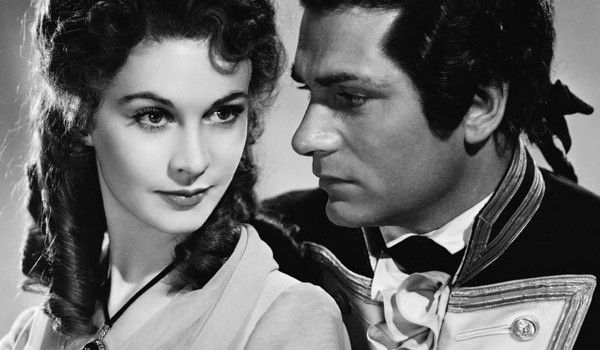
Foreign Propaganda Interference Done Right: Brits in 1940s U.S.
By Steve Sailer
02/22/2020
Bernie Sanders briefed by U.S. officials that Russia is trying to help his presidential campaign
By Shane Harris, Ellen Nakashima, Michael Scherer and Sean Sullivan
Feb. 21, 2020 at 1:16 p.m. PSTU.S. officials have told Sen. Bernie Sanders that Russia is attempting to help his presidential campaign as part of an effort to interfere with the Democratic contest, according to people familiar with the matter.
President Trump and lawmakers on Capitol Hill also have been informed about the Russian assistance to the Vermont senator, those people said, speaking on the condition of anonymity to discuss sensitive intelligence.
It is not clear what form that Russian assistance has taken.
So … that clears that up!
Let me guess, though: I bet some Russian … trolls … are posting … memes!
For example, here’s a high quality 2016 Russian interference effort:
On the other hand, if you want an example of Foreign Interference done right, consider the 1941 Hollywood movie That Hamilton Woman starring Vivien Leigh as Emma Hamilton and Laurence Olivier as Admiral Horatio Nelson, victor over Napoleon’s navy at Trafalgar. From Wikipedia:
The film was a critical and financial success, and while on the surface the plot is both a war story and a romance set in Napoleonic times, it was also intended to function as a deliberately pro-British film that would portray Britain positively within the context of World War II which was being fought at that time. At the time the film was released France, Belgium, the Netherlands, Norway, Poland and Denmark had all surrendered to the Nazis and the Soviet Union was still officially allied to them, correspondingly the British were fighting against the Nazis alone and felt the need to produce films that would both boost their own morale, and also portray them sympathetically to the foreign world, and in particular, to the United States. …
Shot in the United States during September and October 1940,[10] That Hamilton Woman defines Britain’s struggle against Napoleon in terms of resistance to a dictator who seeks to dominate the world.[11] The film was intended to parallel the current situation in Europe and was intended as propaganda at a time before the attack on Pearl Harbor when the United States was still formally neutral. … Stars Vivien Leigh and Laurence Olivier were newlyweds at the time of filming and were considered a “dream couple.” …
While That Hamilton Woman was marketed as historical romance, its subtext falls into the “war propaganda” category.[16] In July 1941, the isolationist group America First Committee (AFC) targeted That Hamilton Woman and three other major Hollywood feature films (The Great Dictator, Chaplin/United Artists, 1940; Foreign Correspondent, Wanger/United Artists, 1940; The Mortal Storm, MGM, 1940) as productions that “seemed to be preparing Americans for war.” …
Critical sources usually point out that That Hamilton Woman was Winston Churchill’s favorite film.[19][Note 1] In her research on the subject, film historian Professor Stacey Olster reveals that at the time the film was made, Alexander Korda’s New York offices were “supplying cover to MI-5 agents gathering intelligence on both German activities in the United States and isolationist sentiments among makers of American foreign policy.”[20] According to Anthony Holden, Olivier’s biographer, That Hamilton Woman “became Exhibit A in a case brought against Korda by the Senate Foreign Relations Committee. The Committee had accused him of operating an espionage and propaganda center for Britain in the United States — a charge Korda only escaped by virtue of the fact that his scheduled appearance before the committee on December 12, 1941 was preempted by the Japanese bombing of Pearl Harbor five days earlier”.
From HistoryNet:
In one scene, whose significance was lost on no one who saw the film, Nelson declares, “You cannot make peace with dictators. You have to destroy them.” Korda always claimed that Churchill had written that line. More pro-British films poured out of Hollywood that year, among them A Yank in the R.A.F., starring Tyrone Power as an American flier who fights in the Battle of Britain, and a raft of melodramatic spy movies depicting sinister Nazi agents at work to undermine America.
The level of talent of British propagandists operating in America in the 1940s — e.g., besides movie stars like Olivier, Leigh, and Cary Grant, there were also Isaiah Berlin, C.S. Forester, Roald Dahl, Alfred Duff Cooper, Ian Fleming, and ad man David Ogilvy — was substantially higher than whatever Russia, Saudi Arabia, or China can muster today. For example, from Wikipedia:
In late March 1942, while in London, [fighter pilot Roald Dahl] met the Under-Secretary of State for Air, Major Harold Balfour, at his club. Impressed by Dahl’s war record and conversational abilities, Balfour appointed the young man as assistant air attaché at the British Embassy in Washington, D.C.
… As part of his duties as assistant air attaché, Dahl was to help neutralise the isolationist views still held by many Americans by giving pro-British speeches and discussing his war service; the United States had entered the war only the previous December, following the attack on Pearl Harbor.[58]
At this time [Roald] Dahl met the noted British novelist C. S. Forester [Horatio Hornblower, The African Queen], who was also working to aid the British war effort. Forester worked for the British Ministry of Information and was writing propaganda for the Allied cause, mainly for American consumption. The Saturday Evening Post had asked Forester to write a story based on Dahl’s flying experiences; Forester asked Dahl to write down some RAF anecdotes so that he could shape them into a story. After Forester read what Dahl had given him, he decided to publish the story exactly as Dahl had written it.
.. Later he worked with such other well-known British officers as Ian Fleming (who later published the popular James Bond series) and David Ogilvy [future author of Confessions of an Advertising Man], promoting Britain’s interests and message in the US and combating the “America First” movement.


